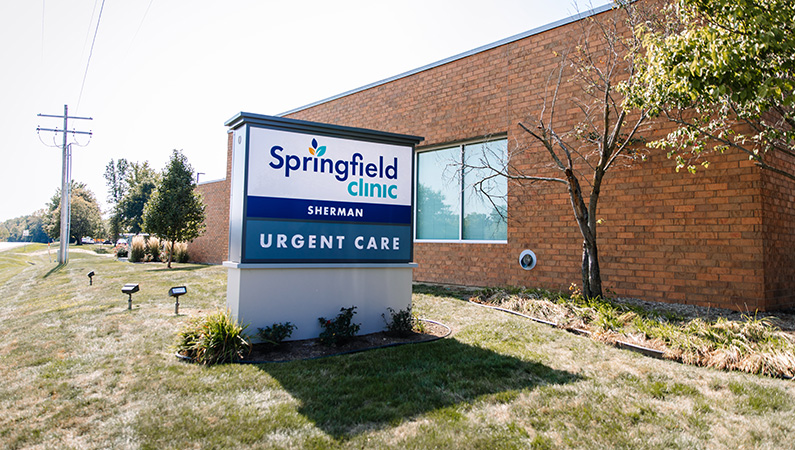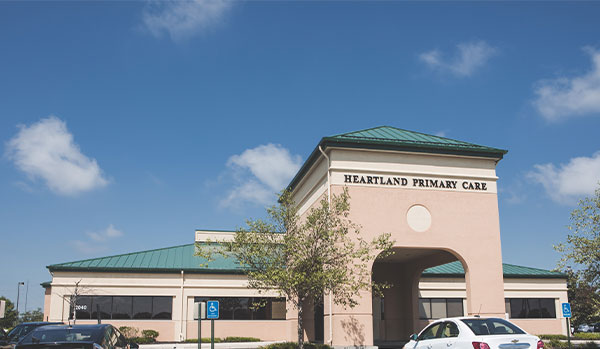Professional Advice on Navigating Clinic Options for Urgent Care
Wiki Article
Recognizing the Role of Urgent Care in Providing Timely Treatment for Non-Life-Threatening Problems
Immediate care facilities have actually arised as a vital part of the health care landscape, attending to the instant needs of individuals with non-life-threatening problems. By offering timely and easily accessible medical services, these facilities successfully link the void in between main care and emergency departments. Nevertheless, the implications of their duty extend past simple convenience, motivating a closer exam of when and just how these centers are utilized. Recognizing the subtleties of urgent care might substantially influence patient results and the overall effectiveness of healthcare delivery. What elements contribute to their expanding value in modern medication?What Is Urgent Care?
Urgent treatment refers to a category of clinical services created to address non-life-threatening problems that call for immediate interest. These facilities act as an intermediary in between medical care medical professionals and emergency situation rooms, using a hassle-free choice for people that need punctual care without the extensive waiting times usually connected with emergency departments.Urgent treatment facilities are normally staffed by doctor, including physicians, registered nurse practitioners, and physician assistants, that are educated to identify and deal with a vast variety of conditions. Common services offered by these facilities consist of treatment for small injuries, illnesses, and infections, as well as diagnostic examinations such as X-rays and laboratory job.
The availability of urgent care is an essential consider its allure, as numerous facilities operate past routine office hours, including evenings and weekends. When their main care carrier may not be accessible, this extensive accessibility permits patients to receive prompt treatment. Furthermore, urgent treatment centers commonly accept walk-in patients, removing the need for visits. Generally, urgent care plays an important function in the health care system, guaranteeing people can access essential clinical services immediately and efficiently.

When to look for treatment at an urgent treatment center rather of a key care medical professional or an emergency situation space,Many individuals may locate themselves unpredictable regarding. Urgent treatment is designed to attend to non-life-threatening problems that call for prompt focus but are not extreme enough to call for an emergency clinic visit.
Normally, one should take into consideration urgent care for concerns such as minor fractures, strains, cuts requiring stitches, or infections like urinary system infections. Additionally, chilly or influenza symptoms, rashes, and allergies can also be properly taken care of in this setup.
It is essential to keep in mind that urgent treatment is not ideal for lethal emergency situations, such as chest pain, problem breathing, or extreme blood loss, which necessitate instant emergency clinic treatment.
Individuals who lack accessibility to a medical care physician or can not secure a timely visit might likewise take advantage of immediate treatment solutions. Inevitably, understanding when to use urgent care can cause extra reliable medical care distribution, permitting patients to receive the suitable level of care based upon their particular health and wellness requirements.
Benefits of Urgent Care Centers
Choosing urgent care centers for non-life-threatening conditions offers numerous benefits that boost patient experience and ease of access. One primary benefit is the reduced delay times contrasted to typical emergency clinic. Urgent care facilities typically operate on a first-come, first-served basis, permitting patients to obtain prompt medical attention without the lengthy hold-ups commonly connected with healthcare facility settings.Additionally, immediate treatment centers provide extensive hours, consisting of evenings and weekend breaks, suiting individuals with varying timetables. This adaptability guarantees that individuals can look for care when it is most hassle-free for them, additionally promoting prompt intervention.

Furthermore, these facilities frequently provide an extensive variety of solutions, consisting of diagnostic tests and small treatments, all under one roofing system. This combination of solutions not just enhances the client experience but additionally fosters an extra cohesive approach to taking care of non-life-threatening health and wellness issues, inevitably benefiting overall individual results.
Typical Conditions Treated
At immediate care facilities, a variety of non-life-threatening conditions can be effectively treated, giving clients with prompt and accessible medical help. These facilities are especially experienced at addressing problems that call for prompt interest yet do not pose an instant danger to life or arm or leg.Typical conditions treated at urgent care centers include small injuries such as strains, pressures, and cracks. Immediate treatment facilities are furnished to do needed analysis tests, such as X-rays and laboratory tests, allowing them to give thorough treatment.
Moreover, immediate treatment carriers can carry out inoculations, assisting to stop the spread of infectious conditions - Urgent Care. They additionally offer solutions for minor treatments, such as suturing wounds or draining pipes abscesses. By offering these diverse services, urgent treatment facilities play an important role in linking the space between medical care and emergency solutions, guaranteeing patients obtain timely therapy for a wide variety of problems without the need for lengthy wait times typically connected with emergency clinic
How Urgent Treatment Supports Medical Care System
Urgent treatment facilities play a vital role in sustaining the overall health care system by alleviating the problem on emergency departments and giving timely accessibility More Bonuses to medical care for non-life-threatening problems. By handling situations such as small injuries, infections, and diseases, immediate treatment facilities enable emergency situation departments to concentrate on even more crucial individuals requiring instant interest.Moreover, urgent care facilities boost healthcare availability, supplying extended hours and a much more hassle-free alternative to standard medical view publisher site care settings. This ease of access is especially valuable for patients who may not have a routine medical professional or that require immediate treatment outside of normal office hours. Because of this, immediate treatment facilities properly reduce enhance and wait times individual satisfaction.
Additionally, urgent care facilities add to cost savings for both clients and the health care system by supplying lower-cost solutions contrasted to emergency situation divisions. This monetary effectiveness is vital in an age of increasing health care expenses, enabling clients to receive required care without sustaining expensive expenditures.
Conclusion
Finally, immediate treatment facilities play a crucial function in the health care system by delivering prompt therapy for non-life-threatening problems. By connecting the gap in between health care and emergency clinic, these centers make sure that individuals receive prompt clinical attention without the lengthy delay times normally connected with emergency divisions. The availability and effectiveness of immediate treatment centers add substantially to reducing the overall problem on health care sources, improving patient end results, and promoting a more reliable healthcare distribution system.Urgent treatment centers have actually emerged as an essential element useful reference of the medical care landscape, attending to the immediate requirements of patients with non-life-threatening problems. Urgent care visits normally incur reduced out-of-pocket expenses compared to emergency situation department brows through, making care extra affordable for individuals without compromising high quality. Immediate care facilities are equipped to do necessary diagnostic examinations, such as X-rays and laboratory tests, allowing them to provide detailed treatment.
By providing these varied solutions, urgent care facilities play a vital role in linking the void between main treatment and emergency solutions, ensuring clients obtain prompt treatment for a broad variety of problems without the demand for long wait times normally linked with emergency areas.
Moreover, urgent care facilities boost health care availability, supplying extensive hours and a more convenient option to standard main treatment settings.
Report this wiki page